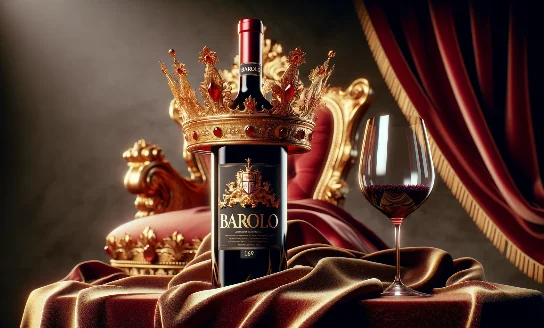preahvihearhotel.com – Wine, a fermented beverage with a history that stretches back thousands of years, has played a significant role in the lives of royalty across the globe. From ancient civilizations to modern monarchies, the vine and the crown have been intertwined in a relationship that reflects the cultural, economic, and diplomatic dimensions of royal life. This article explores the multifaceted role of wine in royal culture, examining its historical significance, ceremonial use, and the impact of royal patronage on the wine industry.
Historical Significance
The connection between wine and royalty is as old as the art of winemaking itself. In ancient civilizations, wine was often considered a divine beverage, reserved for the gods and their earthly representatives, the kings and queens. In the ancient Near East, the Sumerians, Egyptians, and later the Greeks and Romans, all had their own gods of wine, such as Dionysus in Greek mythology and Bacchus in Roman, who were celebrated with grand festivals that included royal participation.
Wine was not only a symbol of wealth and status but also a diplomatic tool. The gift of fine wine was a common practice among royal courts, used to seal alliances, celebrate peace, or mark significant events. The Roman Emperor Augustus, for example, was known to have sent wine as a gift to other rulers, showcasing the sophistication and power of the Roman Empire.
Ceremonial Use
In royal culture, wine has been an integral part of ceremonies and rituals. From coronations to banquets, wine has been served to honor guests, celebrate victories, and commemorate important occasions. The British monarchy, for instance, has a long tradition of toasting with wine during state dinners and other formal events. The Queen’s cellar is stocked with a variety of wines, including some of the oldest and rarest bottles in the world.
The French royalty, particularly during the reign of the Bourbon kings, took the art of winemaking and wine consumption to new heights. The Palace of Versailles was not only a center of political power but also a hub for the cultivation of the finest vineyards. The Sun King, Louis XIV, was known for his extravagant banquets where the finest French wines flowed freely.
Royal Patronage
Royal patronage has had a profound impact on the wine industry. Monarchs have been instrumental in promoting viticulture and winemaking, often owning vast vineyards and wineries. The Spanish royal family, for example, has been involved in the production of sherry, while the Italian royal family has been associated with the production of wines from regions like Piedmont and Tuscany.
In more recent times, Prince Charles of Wales has shown his commitment to organic and biodynamic farming practices through his Duchy Originals brand, which includes a range of wines produced from his own vineyards. This has helped to raise awareness about sustainable winemaking practices among the public and within the industry.
Conclusion
The Vine and the Crown: Wine in Royal Culture is a testament to the enduring relationship between wine and royalty. From ancient times to the present day, wine has been an essential element of royal life, reflecting the shifting cultural, economic, and diplomatic landscape throughout history. As monarchies continue to evolve, so too does their relationship with wine, ensuring that the vine and the crown remain intertwined for generations to come. Whether it’s through ceremonial use, diplomatic gifts, or royal patronage, wine remains a symbol of luxury, sophistication, and power in the world of royalty.
